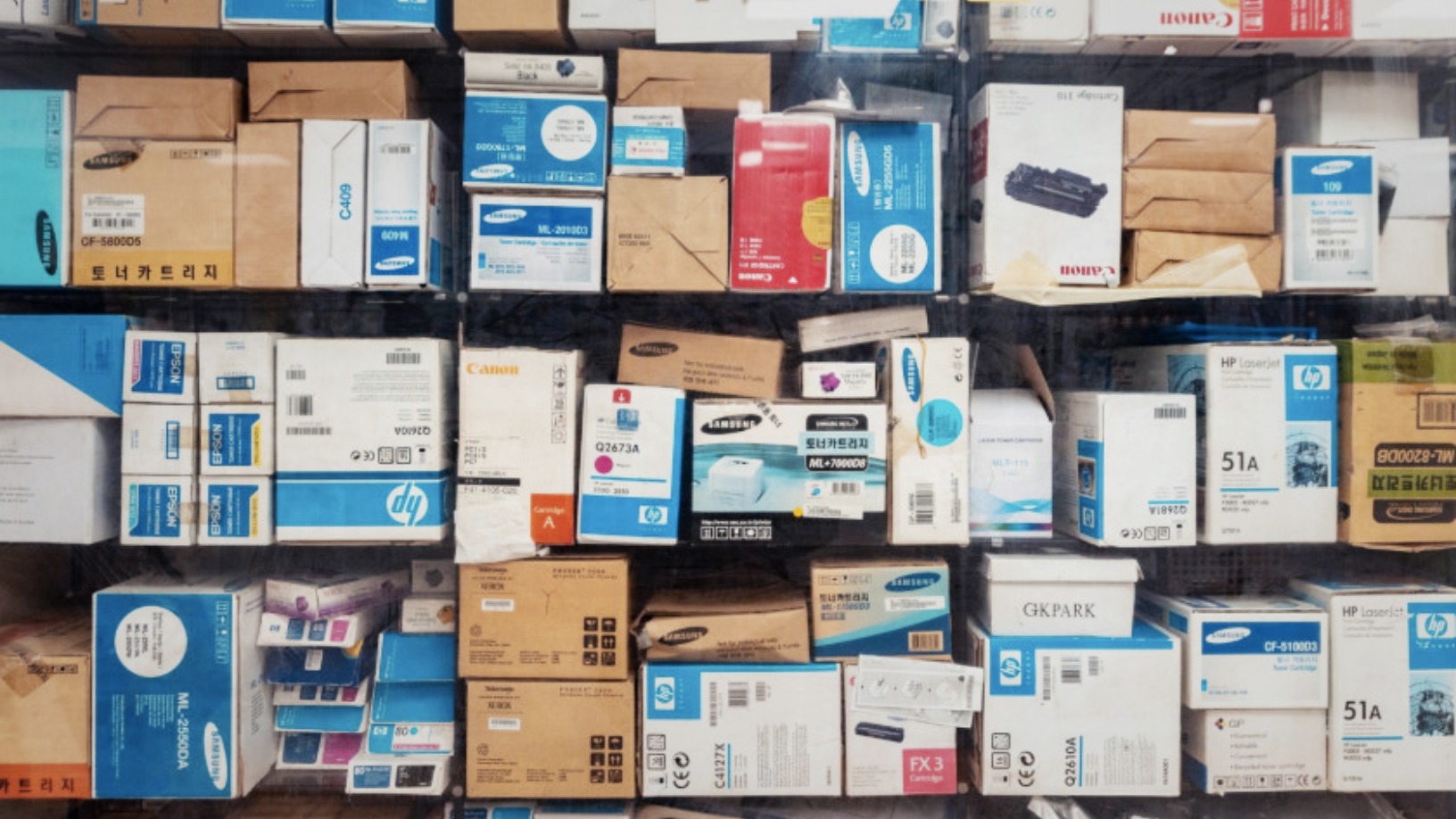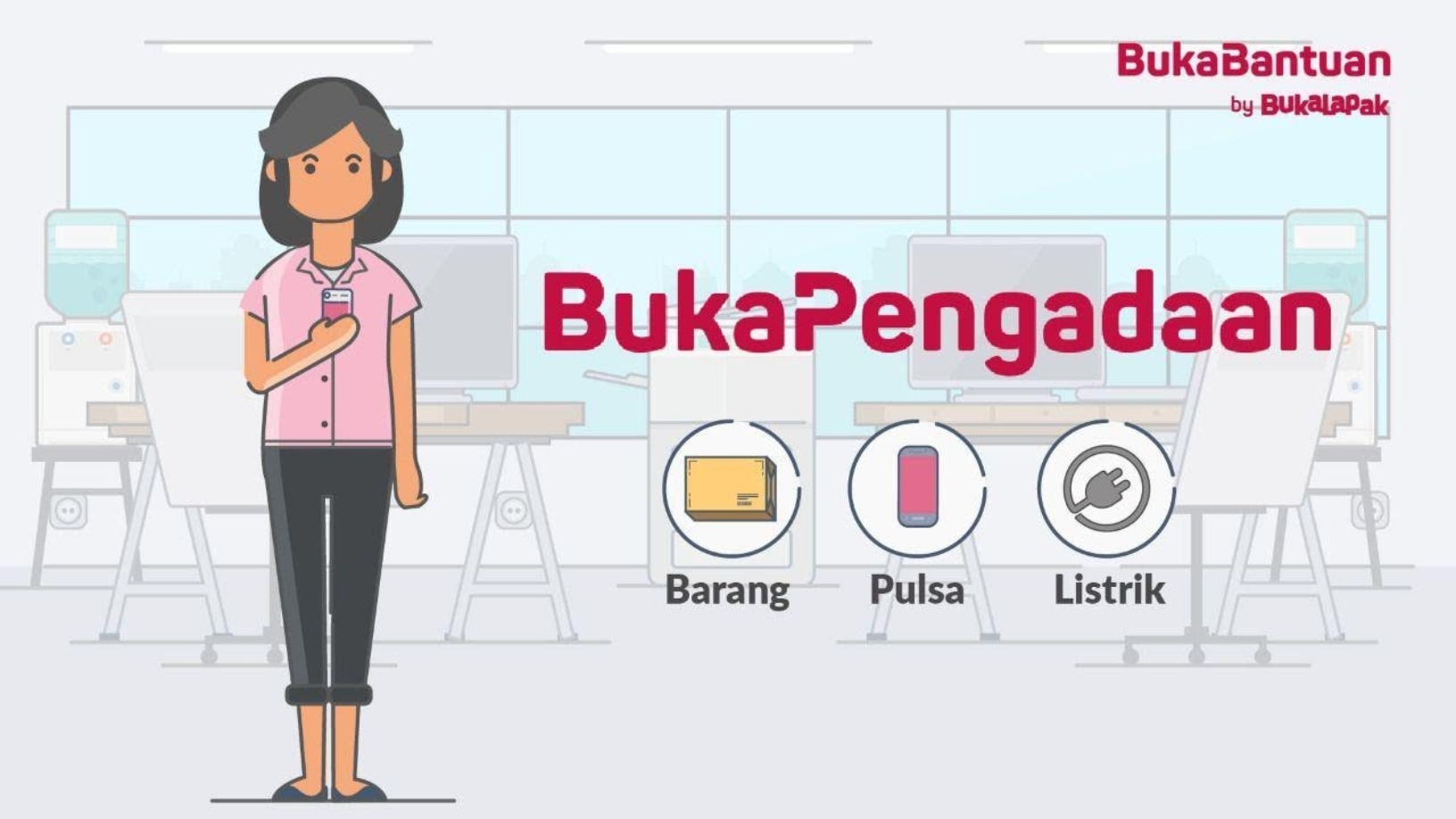Founded in 2015 by the Lippo Group conglomerate, Mbiz is one of the most prominent B2B e-procurement platforms in Indonesia. The company focuses on serving major enterprises, including some other Lippo subsidiaries. Its largest clients include Unilever Indonesia, tobacco conglomerate HM Sampoerna and pharmaceutical firm Combiphar. So far, it has 500 client companies, connecting them with 5,000 vendors.
Mbiz provides two main product offerings. The first is the Mbiz end-to-end e-procurement platform that can be integrated with a company’s existing system. Using Mbiz, a company can quickly request quotes and receive a rapid response from registered vendors. The entire purchasing process, from issuing the purchase order to making payments and recording each step, can be completed on the platform. The second product, Mbizmarket, is more like a traditional online marketplace without the end-to-end procurement features.
CompassList spoke to Mbiz CEO Rizal Paramarta via online call, during which he shared how Mbiz has helped its clients save time and money in the procurement process. Paramarta also discussed the government’s growing interest in e-procurement and the challenges that are preventing e-procurement from becoming more widely adopted in Indonesia’s corporations.
This interview has been edited for length and clarity.
Your client companies have been doing procurement for years. What problems are you trying to solve for them?
Most people would say that the biggest problem in the procurement process here is the lack of transparency, with all the implications of corruption, embezzlement and under-the-table deals. From there, you see the second pain point: unnecessarily complicated process. Stakeholders try to add safeguards to ensure transparency, but the process ends up too complicated. We felt that this could be addressed with a digital system where all the access and transactions can be logged. We can also automate some administrative and recording processes.
Ours is the only platform in Indonesia that is built from the ground up to handle the entire chain, from its start in 2016. All the features I mentioned are available on the platform. Five of our clients have already integrated their accounting system with the platform so transactions are automatically recorded there, too. We are the only ones in Indonesia combining e-commerce with e-procurement.
There are others selling e-procurement software, such as SAP and Oracle, but they have to fill in everything manually, from the vendors to the SKUs. The platform is only for recording the transactions; they don't happen on the platform. What we're trying to do is to make that happen, combining e-commerce with e-procurement.
Our clients are very rational and they use our product only if we can demonstrate the value-add to their company. In one of our quarterly performance reviews with a multinational FMCG manufacturer last year, we were able to deliver a 10–12% cost efficiency and an 80% reduction in process time. This includes the margin we took from consolidating transactions – usually about 5%. So the real savings can go up to 17%. Our vendor consolidation also means that clients can interact with 20% fewer vendors.
Price discovery is another thing. We recruit more vendors in the system and display offers from existing vendors so it's easier to compare. It's not rocket science, yet we can improve the efficiency in many multinationals operating in Indonesia with these simple processes. Many procurement processes are done "semi-manually" and we can improve these things, reducing the work time and resources needed.
Which part of your service are clients most satisfied by?
I think a lot of it is down to the automation and convenience, cutting many manual processes from the workflow. Price discovery for items is probably the second or third most important. In many of these big institutions, greater importance is placed on convenience and automation, reducing workflow from days to hours, followed by strong compliance with SOPs and minimizing human error.
What are the biggest challenges in selling your system to clients?
The sales cycle for our product is very long because it's an enterprise sale. Corporations cannot change very quickly and they sometimes need years to adopt our system fully. Usually, they open up a few categories at a time, starting with small purchases. Once they are confident using our service, they use our system for bigger, more complex purchases such machinery spare parts. We hope that awareness of our solution can grow and that we can convince future clients we can solve their pain points.
We also began working with the West Java provincial government earlier this year, handling procurement for order values lower than IDR 200m. In many provincial governments, procurement below IDR 200m is handled manually using petty cash and there is a lot of room for inefficiency and lack of transparency. We are working with them to make the process online and cashless. The cashless payment is made in collaboration with Bank Jabar [a municipal bank in West Java]. Hopefully, this can address many issues in the government.
We recently signed an agreement with the Bali province and soon we will be working with two other provinces in Java. We have been approached by the government of West Papua to do this, too. Adoption in government is expedited with governors passing the bylaw to use our service. This is just an example of where awareness of our product is growing and it's actually faster in B2G.
Why do you think there is this difference in the speed of adoption between B2B and B2G?
Corporations are big organizations and there are multiple stakeholders. The ones supporting us are usually part of the procurement division and sometimes they might not be able to push for adoption more persuasively than the C-level executives. In the provincial governments, we are supported by inside change agents that want to improve the process, such as the heads of procurement bureaus. There’s a very strong top-down push. There is also a government mandate to make the switch towards e-procurement.
In corporations, awareness of procurement might still be limited, including among C-level executives who might not be aware of how much more efficient they can be. There are also some critical goods and services involved in procurement and they might already be satisfied with what they have, as they don't want to risk changing the process and affecting their entire production. With the provincial governments, our work tends to deal with non-critical items.
After a few years of working on this issue, I realized that we have a dilemma. What's the best outcome and the worst outcome of implementing our system? The best outcome, as shown in our work with a tobacco company, is that they can cut the number of people working in procurement. These people can be transferred to more strategic functions. But that's the best case. Worst case: if they actually had an agreement with certain suppliers, our system would upend that.
Think about Gojek. Who are they disrupting? They are disrupting the traditional ojek industry. But users, both the drivers and the customers, all benefit from the disruption. We are disrupting the users themselves. It can be to their benefit, but it can also mess up their existing processes and collaboration due to our more transparent design.
So how do you try to solve this challenge, to make C-levels more aware of the benefits of e-procurement?
I think it's just a waiting game until we reach a certain tipping point. Our value-add is very clear: we just need to raise awareness and increase our scale. At that stage, the C-levels would realize. We're getting amazing traction with the provincial governments so awareness is rising.
It's like the SAP accounting system in the 80's; nobody was using it even though the benefits were very obvious even then. It didn't get adopted as an industry-standard until much later. We want to accelerate the process so it doesn't take two decades. We want to show them how quickly they can adopt this system and they will realize the benefits.
How does Mbiz ensure that the transactions can be recorded safely and accounted for, even though there's no hardcopy signature or stamp as required by regulations?
Digital signatures and systems can actually be more secure because everything can be tracked and logged. Since our first version, the system can handle the whole process paperless. Our platform has been audited by major companies before they work with us and we are proud to say we have met their international standards. However, in reality, none of our 500 clients use the entire end-to-end stack. Most of them use a large chunk of the procurement chain on our platform, but not the entire thing. There are also limits in regulations. Tax invoices still need to be in hardcopy form, signed and stamped. These types of regulations are outdated and it's a barrier to wider adoption of our systems.
What are the features that you want to improve on?
We realize that in B2B e-commerce, we need to build an entire supply ecosystem that's not just limited to buyers and sellers. It should be connected with other important players such as financing. We have worked with Investree [which acquired a stake in Mbiz in December 2019] and others to provide financing for procurement.
Corporate procurement is typically not done with cash, but with terms of payment via which companies can pay after 120 days. This may not be favorable for smaller vendors with less robust cash flow. There is a gap here where the transaction can happen but the working capital is not enough to complete the order. We have a strategic partnership and system integration with financing companies so the suppliers can apply for invoice financing instantly as the client buys the goods.
We also need integration with third-party logistics, insurance, audit, and other functions, and we are continually developing these integrations. Crucially, we need to be able to integrate with the clients' financial accounting systems so we need to make things easier. Further system integration will improve their relations with us and make it more sticky.
Mbiz is raising funds for a Series B round, with a target close to $20m. When will the round close and which investors are interested in joining?
We did announce that we planned to raise $20m. However, the Covid-19 situation has made it difficult so we reduced the ticket size to $10m. We hope to close at the end of this year, or at the end of January next year at the latest.
There are many investors interested in the round. Dozens of investors have been in talks with us. Our hope is that more investors will be interested in participating, but we have to be realistic. For the next 12 months, we will rely more on local investors and those foreign investors with a base in Indonesia that can conduct the necessary due diligence processes.
How will the invested funds be used to develop Mbiz?
Because we’re not burning cash or subsidizing our products, which is what often happens in B2C, we will allocate the investment to operational costs, to developing the platform and to building the team, especially the commercial team.
Besides fundraising, what are your plans to grow Mbiz this year?
From the private sector side, we will grow organically. But we are also seeing an unexpected and massive opportunity in the government sector. In West Java, we have facilitated several transactions, including healthcare and medical supplies. In Bali, we are in the process of intensive training with the users and the vendors. We have also met with the governments of Central Java and East Java to discuss further steps. There have also been inquiries about Mbizmarket from from other provinces, such as Sumatera and West Papua.
In the next 12 months, we expect a rapid digital transformation of procurement at the provincial government level. Regarding the “tipping point,” it will happen in the long term for the private sector, but in the municipal government sector we are trying to make it happen in the next 6–12 months.
When we look at the local expenditure budget data that’s publicly available, including information from the Ministry of Finance, the addressable spending for us is IDR 128tn, excluding salary and other areas we cannot cover. We are confident that we can be a leader in this market because we have experience in Java and Bali and we are the only existing e-commerce platform selected by the provincial governments.












